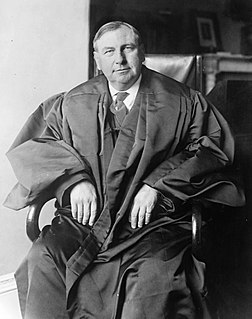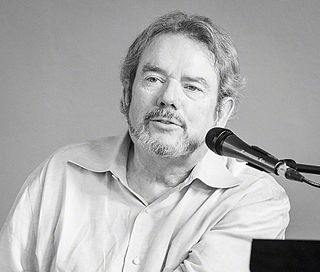A Quote by Abraham Lincoln
Again, a law may be both constitutional and expedient, and yet may be administered in an unjust and unfair way.
Related Quotes
If a juror feels that the statute involved in any criminal offence is unfair, or that it infringes upon the defendant's natural god-given unalienable or constitutional rights, then it is his duty to affirm that the offending statute is really no law at all and that the violation of it is no crime at all, for no one is bound to obey an unjust law.
In bad or corrupted natures the body will often appear to rule over the soul, because they are in an evil and unnatural condition. At all events we may firstly observe in living creatures both a despotical and a constitutional rule; for the soul rules the body with a despotical rule, whereas the intellect rules the appetites with a constitutional and royal rule. And it is clear that the rule of the soul over the body, and of the mind and the rational element over the passionate, is natural and expedient; whereas the equality of the two or the rule of the inferior is always hurtful.
In dealing with the State, we ought to remember that its institutions are not aboriginal, though they existed before we were born; that they are not superior to the citizen; that every one of them was once the act of a single man; every law and usage was a man's expedient to meet a particular case; that they all are imitable, all alterable; we may make as good; we may make better.
Of course, such judicial misconstruction theoretically can be cured by constitutional amendment. But the period of gestation of a constitutional amendment, or of any law reform, is reckoned in decades usually; in years, at least. And, after all, as the Court itself asserted in overruling the minimum-wage cases, it may not be the Constitution that was at fault.
I may not be funny. I may not be a singer. I may not be a damn seamstress. I may have diabetes. I may have really bad vision. I may have one leg. I may not know how to read. I may not know who the vice president is. I may technically be an alien of the state. I may have a Zune. I may not know Excel. I may be two 9-year-olds in a trench coat. I may not have full control of my bowels. I may drive a '94 Honda Civic. I may not “get” cameras. I may dye my hair with Hydrogen Peroxide. I may be afraid of trees. I may be on fire right now. But I'm a fierce queen.
The media is fully fine and hunky-dory with the idea that they may destroy somebody, and they think that's part of the job description. But you turn around and criticize them, and that's not permitted in the vacuum in which they live. They have free rein over you, because I guess this is how they define their constitutional responsibility. And since they have constitutional recognition, somehow they've all been taught at journalism school that nobody may assail them, that nobody may criticize them.
There is no one way to salvation, whatever the manner in which a man may proceed. All forms and variations are governed by the eternal intelligence of the Universe that enables a man to approach perfection. It may be in the arts of music and painting or it may be in commerce, law, or medicine. It may be in the study of war or the study of peace. Each is as important as any other. Spiritual enlightenment through religious meditation such as Zen or in any other way is as viable and functional as any "Way."... A person should study as they see fit.


































